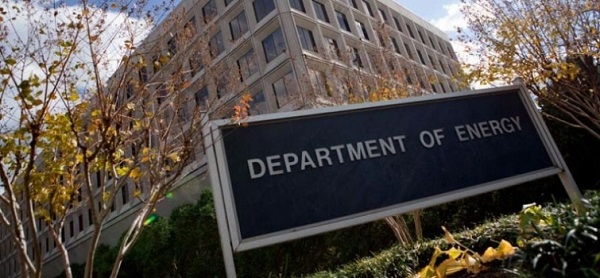The Energy Department is announcing funding for seven R&D projects that will support key scientific advancements in solid-state lighting (SSL) technology. The projects will help accelerate the development of high-quality light-emitting diode (
LED) and organic light-emitting diode (OLED) lighting products that can significantly reduce energy costs for American families and businesses by using less electricity than products currently in use, and ensure that the U.S. remains a global leader in SSL innovation.
 |
|
(Image: the Department of Energy, USA) |
Solid-state lighting has contributed to more than $2.8 billion in U.S. energy cost savings over the past 15 years, and further SSL technology advances will increase those savings even more in the years to come. By 2035, SSL could reduce national lighting electricity use by 75% -- which would equate to the total energy consumed by 45 million American homes today and could save American families and businesses $50 billion annually, not to mention add jobs and boost the economy.
Department-funded R&D will foster technology breakthroughs to unlock new levels of SSL performance and energy savings, and to strengthen the position of U.S. SSL technology leadership. In total, the seven selected projects will receive $8 million and will make a cost-share contribution for a total public-private investment of over $10 million, as they help to further reduce the cost and improve the quality of SSL products:
-
Georgia Institute of Technology (Atlanta, GA) -- Discovery of novel organic blue materials and corresponding laboratory devices for high-efficiency white OLEDs.
-
Lumileds, LLC (Santa Clara, CA) -- Gain a fundamental understanding into the nature of LED defects, leading to the optimization of epitaxial growth conditions for minimized material quality degradation.
-
OLEDWorks, LLC (Rochester, NY) -- Investigate the use of a novel materials deposition and device fabrication technique for OLED fabrication.
-
University of California, San Diego (La Jolla, CA) -- Gain a basic understanding of circadian health impacts of lighting by observing night workers in an emergency room setting, providing key building blocks that can be applied to the development of future LED light engines and luminaires.
-
University of California, Santa Barbara (Santa Barbara, CA) -- Develop theoretical modeling and laboratory experimentation to improve green emitter inefficiencies in LEDs.
-
University of Southern California (Los Angeles, CA) -- Investigate the combination of blue fluorescent and red/green phosphorescent emitter materials to improve OLED efficacy and lifetime.
-
Virginia Polytechnic Institute and State University (Blacksburg, VA) -- Investigate the health impacts of outdoor LED lighting on drivers, pedestrians, and residences that experience light trespass, providing data for science-based, informed decision-making.
This is the twelfth round of the Department's investments in solid-state lighting R&D. For more information on the selections and SSL technologies, visit the Solid-State Lighting Program website.












